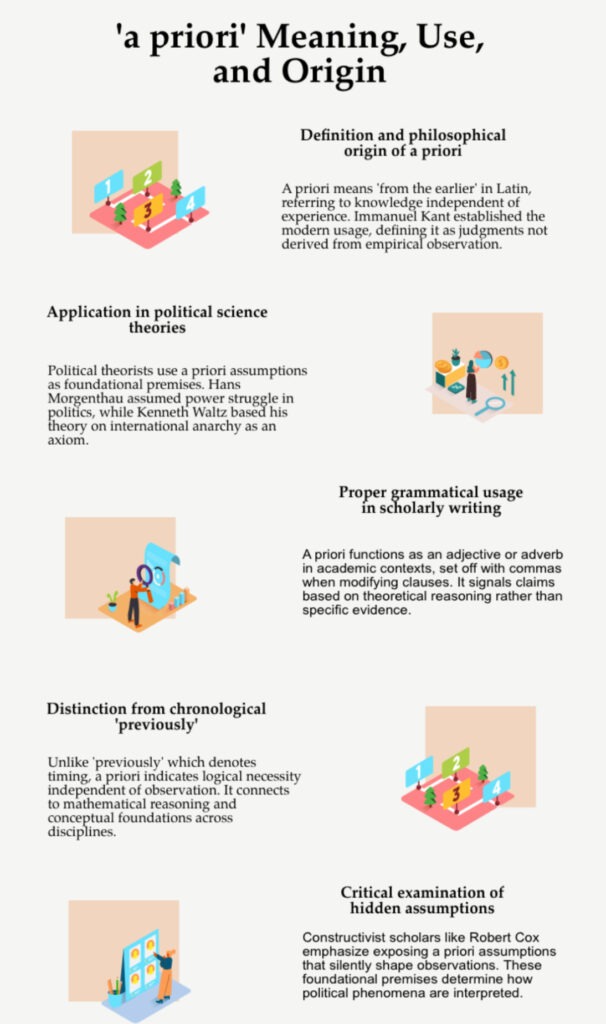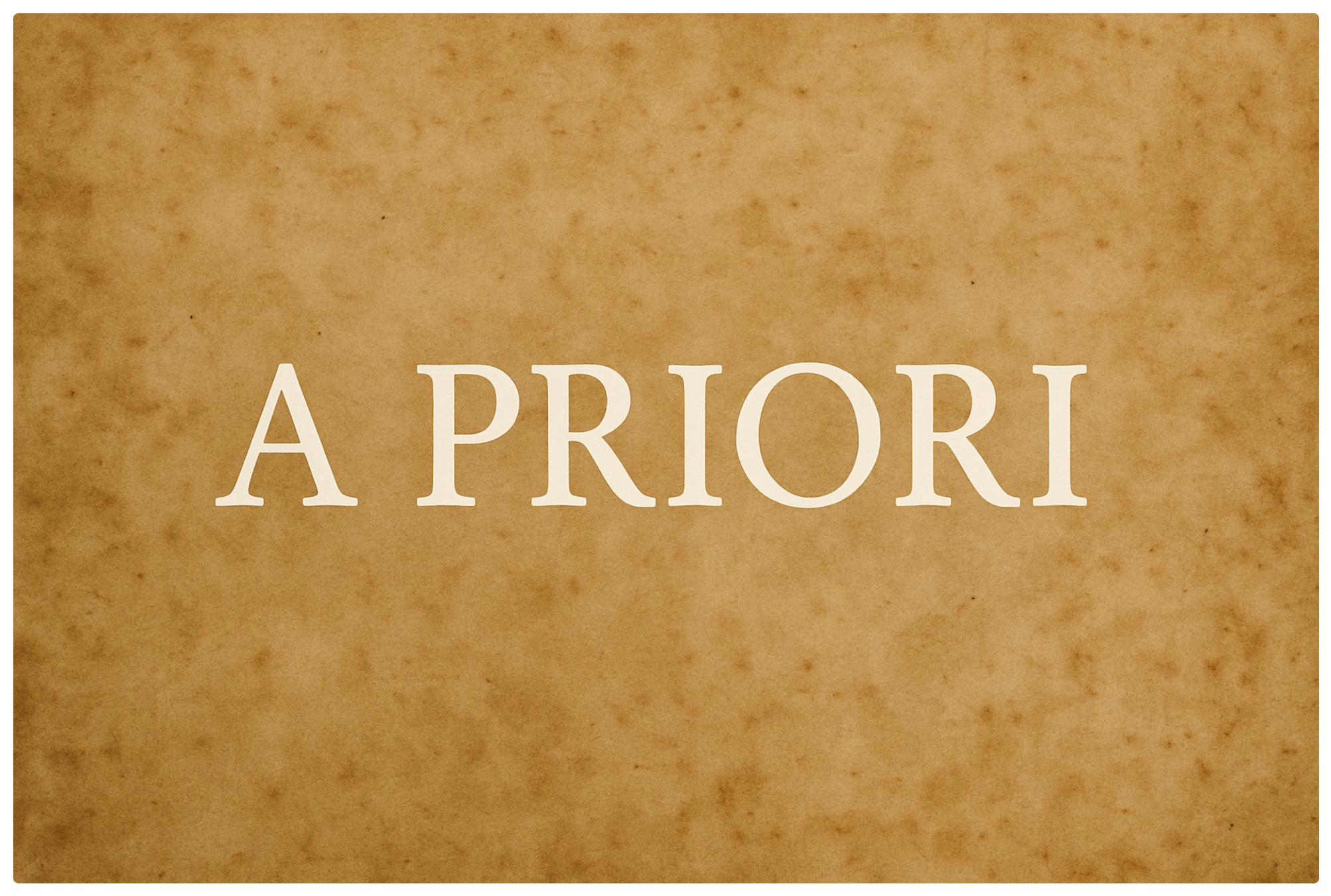Every political theory starts somewhere. Long before data tables or election maps, scholars choose certain starting truths about human nature, cooperation, or the structure of the world that are the base for everything that follows.
Philosophers call these starting truths a priori (Latin for “from the earlier” or “from what is before”).
The modern usage was started by Immanuel Kant, who defined a priori judgments as those “independent of experience” and contrasted them with a posteriori, which “have their source in experience” (Critique of Pure Reason, 1781/1998). Kant argued that some principles, like mathematics or the forms of space and time, are necessary conditions for any possible experience. Political science borrowed this language to describe the assumptions that underlie its own theories.
For example, Hans Morgenthau in Politics Among Nations (1948) treats the struggle for power as a fundamental feature of politics: an a priori premise about human nature.
Kenneth Waltz’s Theory of International Politics (1979) begins with the axiom that the international system is anarchy, not something observed once but presupposed to explain recurring patterns of war and peace.
Even more contemporary scholars such as Alexander Wendt in Social Theory of International Politics (1999) and the co-edited Quantum International Relations (2022) discuss how unexamined assumptions frame our understanding of global order.
These examples show why the phrase a priori keeps appearing in political science literature: it names the invisible scaffolding on which our explanations of world politics are built.
How to Use A Priori in a Sentence
In scholarly English, a priori is treated as an adjective or adverb and usually set off with commas when it modifies a whole clause.
As an adjective:
“Waltz’s model rests on a priori assumptions about state behavior.”
As an adverb:
“A priori, one might expect democracies to cooperate more than autocracies.”
Both forms signal that the claim does not depend on specific evidence but is assumed for theoretical or logical reasons.
Avoid using it merely to mean “earlier” or “beforehand,” which would dilute its precise philosophical sense.
Why Say A Priori Instead of “Previously”?
At first glance a priori can look like a fancy way of saying “beforehand.”
BUT! in scholarly writing (especially political science and philosophy) it carries a sharper, technical meaning.
- Logical necessity, not just chronology.
Previously just means something happened earlier in time. A priori means a claim is independent of particular observations; it would hold even if no empirical case had yet been studied. For example, Waltz’s statement that “anarchy is the ordering principle of the international system” is not an historical report; it is a structural premise of his theory (Waltz, 1979). - Connection to formal reasoning and mathematics.
Following Kant’s usage, an a priori proposition is one that can be known through pure reason, like a mathematical axiom. Political scientists adopt the term to signal that a statement functions as an axiom or necessary condition. - Shared language across disciplines.
Using a priori links political science to philosophy, law, and economics, where the distinction between a priori and a posteriori has been crucial for centuries. It tells a trained reader that a claim belongs to the realm of conceptual foundations rather than contingent facts.
This is why constructivist critiques, such as Robert Cox’s reminder that “theory is always for someone and for some purpose” (Cox, 1981), focus on exposing hidden a priori assumptions: they are powerful precisely because they are not just things that happened “earlier,” but conditions that silently shape every later observation.

References
- Kant, I. (1998). Critique of pure reason (P. Guyer & A. Wood, Eds. & Trans.). Cambridge University Press. (Original work published 1781)
- Morgenthau, H. J. (1948). Politics among nations: The struggle for power and peace. Alfred A. Knopf.
- Waltz, K. N. (1979). Theory of international politics. Addison-Wesley.
- Wendt, A. (1999). Social theory of international politics. Cambridge University Press.
- Wendt, A., & Der Derian, J. (Eds.). (2022). Quantum international relations: A human science for world politics. Oxford University Press.
- Cox, R. W. (1981). Social forces, states and world orders: Beyond international relations theory. Millennium, 10(2), 126–155.









No responses yet